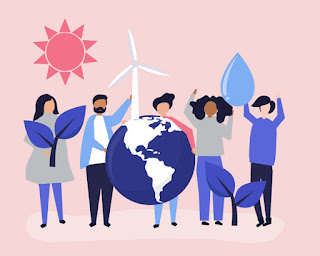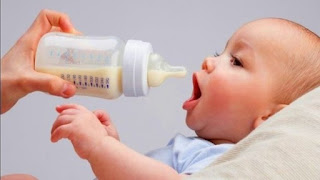DOES FOOD CONTAINERS AND BOTTLE TUMBLER ARE SAFE AND USER FRIENDLY?
 |
| Source :Freepik |
There are many
companies produce containers and tumbler nowadays plus it comes with a lot of designs
and shapes. Due to covid-19, I believed there a few groups of people already
bought their own containers to pack up foods and beverages because they are very
particular about the hygiene. But the question now is, do you think your containers
and tumbler is safe for daily used? Because in the market they many brands that
you can choose from. But how far do you know what is made up for your container
and tumblers? We can see majority of the brands producing containers and tumbler
made out from PLASTIC. We know how far plastic can harm maritime life but how
about the safety of people for using it?
DID
YOU KNOW ABOUT BPA?
BPA stands for
bisphenol A is a carbon-based. BPA is found in polycarbonate plastics and epoxy resins.
Usually it’s used in everything from shatter-resistant plastic water bottles
and food storage containers to canned food and even in coffee cans. According to
Buiced liquid some research has shown
that BPA can seep into food or beverages from containers that are made with BPA
[1]. Exposure to BPA chemical can caused widespread damage throughout our
bodies for instance is give effects to our brain, behaviour, prostate gland of
fetuses, infants and children.
 | |||||||
| Source: South Beach Diet
However, the Food and Drug Administration (FDA) has
said that BPA is safe at the very low levels that occur in some foods [2]. If you
concern about BPA, you can take this few action to reduce the using of BPA:
Moreover, according to Harvard Medical School they found BPA
issue is controversial because toxicological research team has
added to the uncertainty about how dangerous this chemical really is. At the
same time, Professor at Dept. of Environmental Health Harvard School of Public
Health mentioned to limit the using of BPA. As individuals, we can lower our
exposure by eating less canned food and more fresh fruits and vegetables, which
is always a good thing. Parents can buy products that aren't made of
polycarbonate. You can also switch from polycarbonate water bottles to
stainless steel ones [3].
WHAT
ABOUT BPA-FREE?
Source: Freepik
When the answer for BPA
found controversial, majority of companies right now produce a BPA-FREE
plastics. A product that is BPA- free is one which does not use the organic
compound Bisphenol A in its construction [1]. The "BPA-free"
labels on plastic bottles serve as a reassurance that the product is safe to
drink out of [4]. According to research add onto growing evidence that BPA-free
alternatives may not be as safe as consumers think. Researchers found that in
mice, BPA replacements caused decreased sperm counts and less-viable eggs. Though
this research was done on mice, the researchers think the results could hold
true for humans [5]. However, more research would be needed to confirm. BPA-FREE
product including baby bottles, plastic plates and cutlery, storage containers
and drink bottles.
 Source: Ibu Syurga Source: Bidadari.My
1. Buiced
liquid. Buiced liquid is BPA-Free. Retrieved from https://www.buiced.com/pages/bpa-free
2. Brent
A. Bauer, M.D. What is BPA, and what are the concerns
about BPA? Retrieved from https://www.mayoclinic.org/healthy-lifestyle/nutrition-and-healthy-eating/expert-answers/bpa/faq-20058331
3. December
2011. Harvard Health Letter. Ask the doctor: Should I worry
about health effects from BPA? Retrieved from https://www.health.harvard.edu/staying-healthy/should-i-worry-about-health-effects-from-bpa
4. September
18, 2018. Yasemin Saplakoglu. Scientists Warn BPA-Free Plastic
May Not Be Safe. Retrieved from https://www.livescience.com/63592-bpa-free-plastic-dangers.html
5. September 24, 2018.Tegan S.Horan. Replacement
Bisphenols Adversely Affect Mouse Gametogenesis with Consequences for
Subsequent Generations. Retrieved from https://www.cell.com/current-biology/fulltext/S0960-9822(18)30861-3
|



Comments
Post a Comment